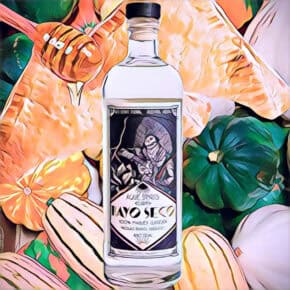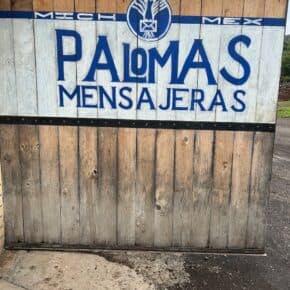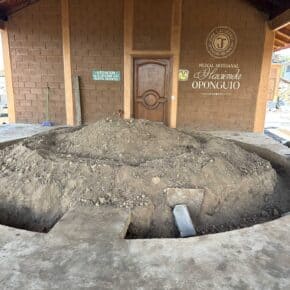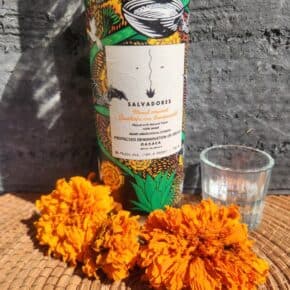The question of who regulates mezcal should be easy. Unfortunately it’s a complicated matrix of Mexico’s bureaucratic structure, economic imperatives, and global branding initiatives. The simplest way to describe it is that the Mexican government:
- Creates Denominaciones de Origen (DO) so that they can own the names of items like mezcal.
- Writes the regulations for the various products covered by a DO so that they define how they’re produced and managed.
- Determines which Asociaciones Civiles (AC) manage and regulate those DOs so that the Mexican government is not itself managing them.
In the case of mezcal, the Consejo Regulador del Mezcal (CRM) is that AC.
Mezcal is a complex world: To manage it you have to consider everything from various traditional practices to biodiversity. As demand has surged, the need to manage agave crops has only grown as well. And then there are all the gritty questions about taxes and fees. And that’s just part of it: Most of the challenges in today’s mezcal world can be traced directly to how the DO was created and is managed today. The good news is that there has been an active discussion about what needed to be changed and how: Topics included extending the DO to other states, conflicts of interest, sustainability, transparency, and many more..But perhaps the most pressing issue has been whether the CRM would, or should be the sole certifier of mezcal. The bad news is that, just as discussions about these topics were reaching some decision points, the pandemic hit and everything was put on hold.
The question of who certifies
For decades, the CRM was the only regulator of mezcal and it didn’t seem like a huge issue, partially because the market for it was tiny. But as the market grew and took off in the second decade of the 21st Century tension emerged about this question mostly because the CRM had a difficult time handling the success. Headquartered in Oaxaca, the CRM has a small staff, and for most of its history, it focused on mezcal produced there because at about 85% of the mezcal in the market is from Oaxaca and because it’s the most well known internationally. But as more producers in other states became intent on joining mezcal’s international success, they were challenged by bureaucratic restraints, primarily because the CRM was too small and understaffed to visit far flung states and do all the work that its regulations required for certification. Ultimately this helped create an impression that the CRM didn’t care about other states and, especially, the small producers in rural areas.
Things finally broke into the open in 2018 with a legal dispute between the Secretariat of Economy (SE) and the CRM. The SE, through the Dirección General de Normas (DGN), approved three private entities –Verification and Certification PAMFA, Mexican Certification (CMX) and Center for Innovation and Agrifood Development of Michoacán (CIDAM) to assist in the certification process for mezcal. That is, they opened up the franchise of who could regulate mezcal in addition to the CRM a huge change from the way everything had been done up to that point. According to Cuauhtémoc Aceves, PAMFA Director, the number of producers requesting the certification of their products became too much for the CRM to handle by itself. States like Durango, Zacatecas and Michoacan had repeatedly requested more certifiers, especially since several were already working for the agro industry certifying other products, meaning that they already had the equipment, the expertise and staff. The approval by the SE and DGN meant that these certifiers were authorized by the Entidad Mexicana de Acreditación to offer the same services provided by CRM such as agave georeferencing, holograms, and – most importantly – certifications for mezcal producers who want to sell within and outside Mexico.
These other regulators exist because they certify many other Mexican products for export. PAMFA has a 25 year track record of doing the certification work that makes Mexican agricultural products so successful in the United States and globally. CMX is close behind with 20 years in the business so it’s not like these were new organizations in the regulatory apparatus. And while PAMFA, CMX and CIDAM are direct competitors, they will sub-contract each other’s services in order to reach more clients.
The CRM didn’t simply give in, it filed an amparo or legal case arguing that it was the sole regulator of what is and isn’t mezcal. Their case boiled down to an assertion that the original law only recognized the CRM as mezcal’s regulator. In February of 2020- a Mexican court agreed with the CRM and threw the entire mezcal world into chaos because, for the previous two years, many mezcal producers had been going through the alternate routes to certification and suddenly those were no longer legally valid. To make things worse, the CRM already had a bad backlog of applications and any new applications would compound the problem. And to top it all off the COVID crisis completely shut down certification just a month later in March of 2020.
CRM overreach?
In August 2020, the CRM submitted a proposal to the DGN to modify the general criteria of certification. One of the proposed changes was to extend CRM’s certification capabilities toward every product that may contain mezcal, for example, bottled or canned cocktails. They also requested the inclusion of “maestro mezcalero” in the label of every bottle of mezcal. Even though the other certifiers were suspended in their activities, the DGN decided to consult with them regarding these proposed changes. After reviewing the claims as well as the arguments against, the DGN concluded the document was an intent to modify the official norm and that CRM was out of bounds as this can only be done by the federal government. Therefore, the proposal was dismissed and seen as a further attempt by the CRM to control the market.
The CRM has long been accused of many things, from favoritism to corruption, and that has been no different under the nine year leadership of Hipócrates Nolasco. Under his leadership, mezcal has seen tremendous growth and the implementation of NOM-070. But the organization has been plagued by accusations of conflict of interest, particularly regarding one of the labs that certifies mezcal, and a lack of support for small producers to obtain certification. And then in July of 2020, while the legal dispute regarding additional certifiers was pending, the CRM was sanctioned and fined by the SE for deceptive, abusive practices executed since 2017.
According to Alberto Ulises, lawyer representing PAMFA, CIDAM, and CMX, this sanction went to the heart of the problem with the CRM, that somehow the entity in charge of certification became the ultimate authority for mezcal. That there must be an entity dedicated to certify and evaluate the producers and its processes in every industry is not the issue. He says that “In the U.S there is a specific actor dictating regulations, one more focused on certification and another one in charge of representing the interests of the industry. But not all of them at once.” There is no doubt that in the last ten years, the CRM has been very effective in building and organizing agave growers and mezcal producers to present them to the world, and very active when protecting the DO, but it seems the organization has overreached and this is rankling not only other organizations, but also producers.
The court weighs in
After a year of uncertainty, on March 25th, 2021 a resolution from the court suspended the amparo from the CRM, thereby allowing all three regulators to resume working as authorized certifiers. The CRM can continue to fight this decision and take it to the Supreme Court but the other regulators would still be able to certify mezcal during that process. While there might be some celebrating what they see as the end of CRM “dominion”, the implications of many legal controversies as well as the current fight over CRM’s presidency, are much more complicated.
There are private firms specialized in helping producers with business registration, taxes, product portfolio development which is part of what CRM has already established. But, with the addition of more entities doing the work of CRM, who will act as regulatory authority? Could it be the associations of mezcal producers in every State? Or should they only limit their reach to duties of advocacy and training for the rest of the chain? All of these questions and many more remain open pending the movement of this case to the Supreme Court.
Finally, what about the DO?
Hipócrates Nolasco has always rejected the idea of incorporating destilados de agave into the DO, because he claims the CRM has the responsibility of protecting the tradition of mezcal and he fears that an accepted use of the phrase “destilados de agave” would open the door to producers outside Mexico using the phrase and diminishing the cultural heritage of mezcal. But, given that other countries like Australia, Peru, Ecuador, South Africa and the United States have begun producing destilados, is it time to reformulate the DO to integrate all of those who have been making mezcal for generations? At times it feels like the federal departments and regulatory bodies are more committed to protecting the word mezcal than the actual process of making it.
The exponential growth of the mezcal industry, in such a short period of time has meant that much of the conversation about how to do things has lagged behind the how to effectively manage the growth and all of the issues that have arisen because of that. I have often read that the pandemic changed our reality forever, and it has brought an urgent need for reinvention. As we think about this in terms of the mezcal industry, there are several questions we need to answer so we can figure out how to proceed forward,
- How does the framework of mezcal and agave spirits need to evolve?
- As the place of origin of distilled agave spirits, does Mexico need more public policy to protect its heritage?
- Would the creation of a federal agave council help bring the private, public and social sectors together?
- Would it work better for a multidisciplinary entity to oversee the denominacion de origen for mezcal?
I definitely have more questions than answers but overall, I believe whatever the alternative is, the challenge will be to make it work with accountability and full representation.












Very nice note!
Thanks for sharing this important info and the forging of this article.
Great article Susan!
I also think, as it is its own escence, for the DO to remain as is without bringing in “destilado de agave”. I believe now a days, it has been noticed that having the word mezcal on the bottle is not necessarily guarantee of a great product. More people are starting to look beyond that not minding if it is destilado de agave or aguardiente de agave. Articles like this bring more knowledge to everybody towards the right direction.